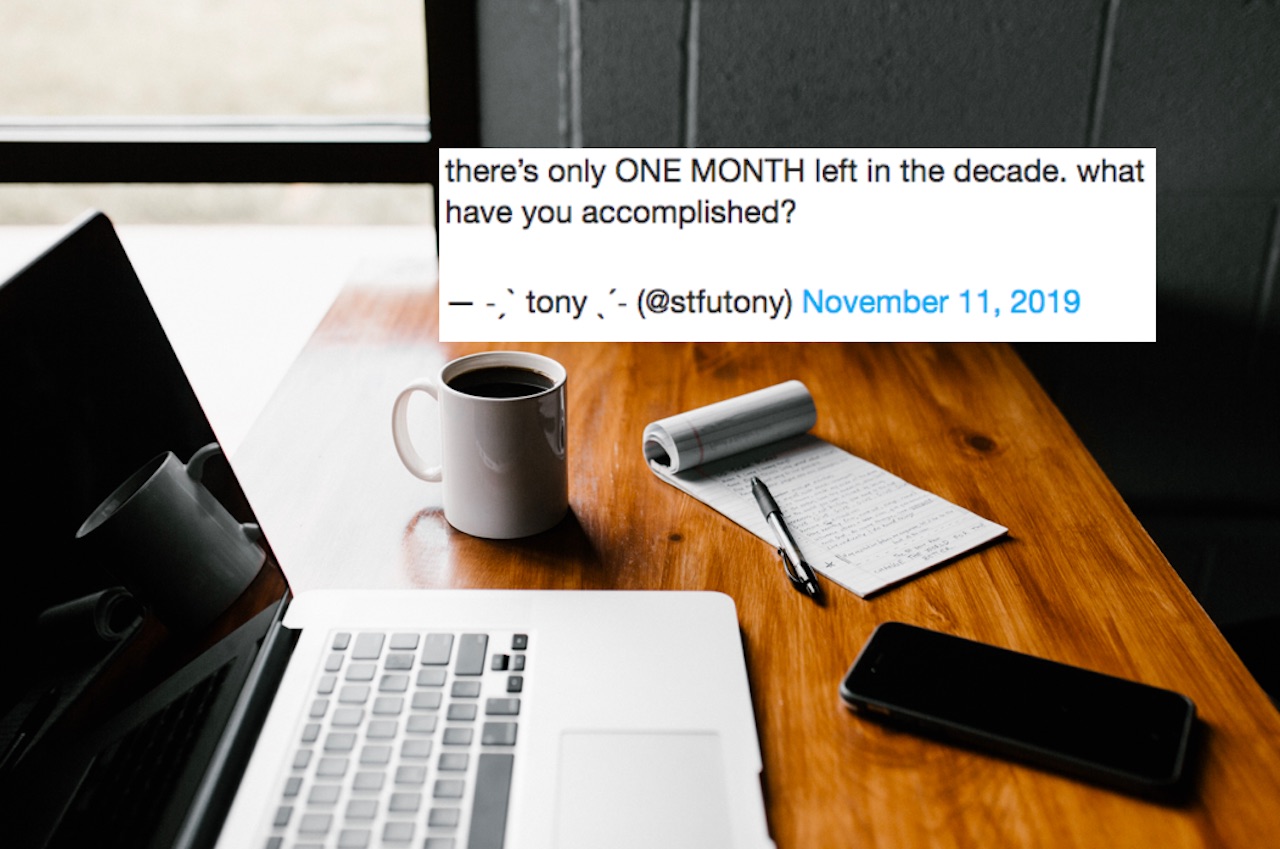At the start of the previous decade, I had my career all planned out at 20.
I would graduate within the top 10% of my cohort in university just like I did in polytechnic. Then I would embark on a career in journalism, which would eventually take me to New York City—a cliche I was more than willing to sell my soul for—in my late twenties. Everything would fall into place.
Then reality hit. University was awful: I developed depression because I abhorred the culture. I decided it was pointless to do an Honours track, so I opted out. Then, after a short 15-month stint in the local magazine industry for a first job, I grew disenchanted by the unbelievable amount of press releases I had to read about eyeliner. To take a break from the tiring media industry, I sold my soul in another way: I became a public servant.
In between everything, the closest I got to a job in the states was setting my LinkedIn job search settings to “New York City”. But every job I wanted required me to have, like, 10 years experience and a lack of imposter syndrome.
So I tried for someplace nearer: China. I got a couple of job offers and I turned them all down. I might have wanted to leave Singapore, but I didn’t want it bad enough to settle for something less than my dream.
Nothing I had planned at the start of the decade fell into place.
And yet, I have accomplished so much.
Last month, I chanced upon a viral tweet that read: “There’s only one month left in the decade… What have you accomplished?”
The first ‘accomplishment’ that came to mind was the resilience and resourcefulness I had in figuring out my career. My resume is ‘diverse’, which is really just another term for someone who takes blind stabs in the dark, hoping something would stick.
At the time, not having a dazzling career was something I felt ashamed about, especially since I was a top student in school, so I chose to bury the shame. With the benefit of 10 years of hindsight, all the ‘wrong turns’ are now an accomplishment. Every decision I made was necessary in hindsight, in order to give myself the experiences that would shape myself into the person I needed to be.
What I didn’t know then was that the rest of my decade would be spent picking apart so much of what I believed constituted success, then putting the pieces back together in a different manner.
In 2010, almost everything I’d have considered an accomplishment then wouldn’t make me feel remotely successful now.
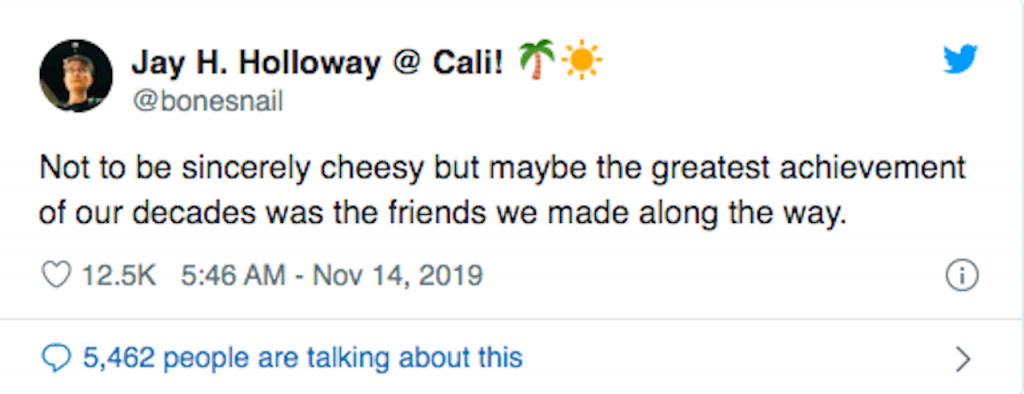
At 19, along with my career goals, my idea of success was getting married at 25 and having children by 28. But leaving my stable and loving relationship because it didn’t ‘feel right’ meant I willingly upended that notion.
At 26, I put my career in the spotlight. Specifically, I believed I’d be more successful if I could work and live abroad for a few years, no matter the location, than if I stayed in Singapore. After getting a job that required me to relocate, I turned it down, again effectively tearing apart everything I thought I wanted with career accomplishment.
Likewise, many people who shared the tweet stated that they had completed their PhD, landed their dream job, published several books, bought a house with their hard-earned money, and gotten married—all accomplishments that deserve massive congratulations.
Under the same tweet, however, a minority replied with accomplishments that were invisible. For instance, they survived a decade of depression, or began necessary inner work through therapy to unlearn destructive behaviours and get out of toxic patterns in their life.
A small percentage of the latter group also expressed a crippling sense of inadequacy when they had to recall their accomplishments this decade, especially after looking at the majority of replies centred around the conventional notion of what an accomplishment should look like. Coupled with heightened levels of self-presentation on social media this decade, their ‘invisible accomplishments’ paled in comparison or, worse, appeared to be invalidated by the mainstream depictions of success.
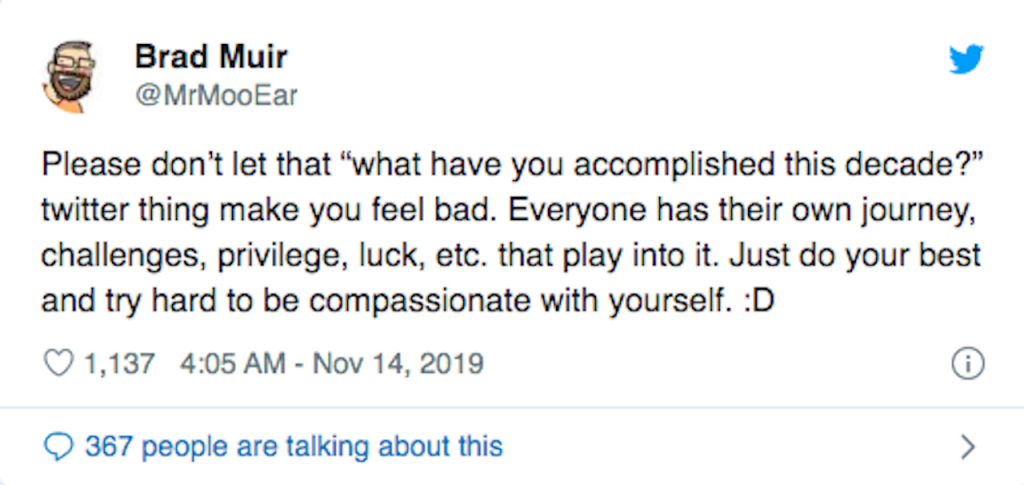
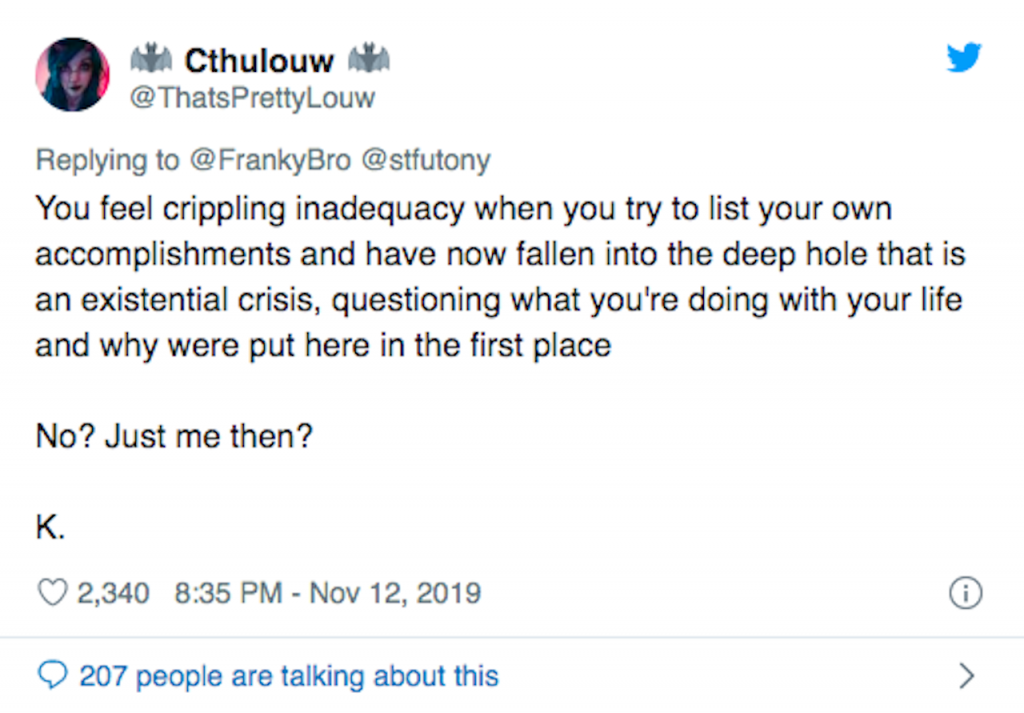
Firstly, as evident from the varying responses, accomplishment is subjective. There are more than sufficient aphorisms to remind us that we shouldn’t compare one person’s highlight reel with our behind-the-scenes, because everyone reaches different milestones in their own time and at their own pace.
Moreover, one man’s definition of a grand accomplishment might be another man’s mere anecdote.
Secondly, reducing our entire decade’s worth of experiences into a few defining moments only puts unnecessary pressure on ourselves and forces us to frame our decisions as more significant than they might be. This isn’t to be flippant about the choices we make and the consequences we bear. After all, there are inevitably choices that are far weightier than others, such as leaving someone with whom you believed you’d spend your life with.
But these forks in the road are just a few in our life’s worth of diverse experiences.
Like many people my age, a decade is one-third of my life. Singling out a few accomplishments to consider our best of the decade doesn’t do justice to the ways that other supposedly less significant experiences have shaped who we are.
Thirdly, listing what we’ve accomplished in the last decade often ignores the privilege necessary to achieve what society considers ‘success’, such as getting a degree or owning a home. Not acknowledging the privilege and luck in our individual accomplishments wouldn’t be properly representing our success either.
For instance, in this decade, I’ve realised the most important privilege is good mental health, closely followed by financial stability. None of my personal or professional accomplishments would be possible without having a comfortable level of both.
All this nuance, however, gets lost when the conversation around accomplishments of the decade focuses on stereotypically impressive milestones.
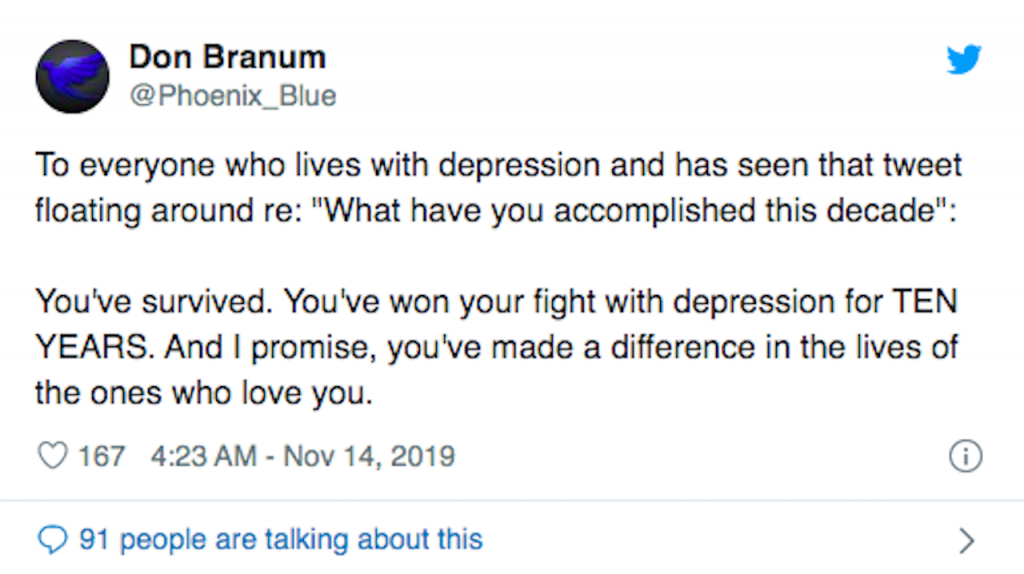
Unfortunately, the nature of social media inadvertently filters everything through a lens of performance. What might have begun as sincere and earnest sharing might be taken as self-congratulatory bragging and a subconscious desire for public validation and approval.
After all, sharing anything on social media comes with a natural, innate hope that the people who receive it see us in the ways we want to be seen.
But don’t let me stop you from sharing your accomplishments of the decade. As much as it doesn’t seem to be from this exercise, what’s most important is not your accomplishments, but why you picked these specific accomplishments to define your decade. Knowing how to differentiate between the two makes all the difference.
In 2010, I wouldn’t have been able to tell you that.

